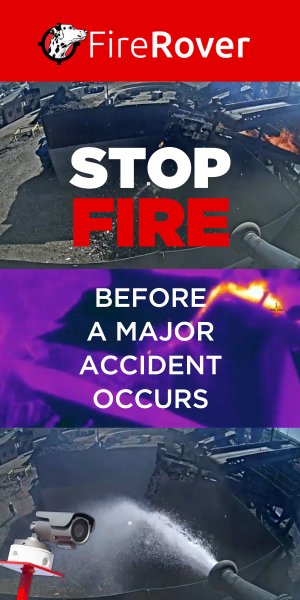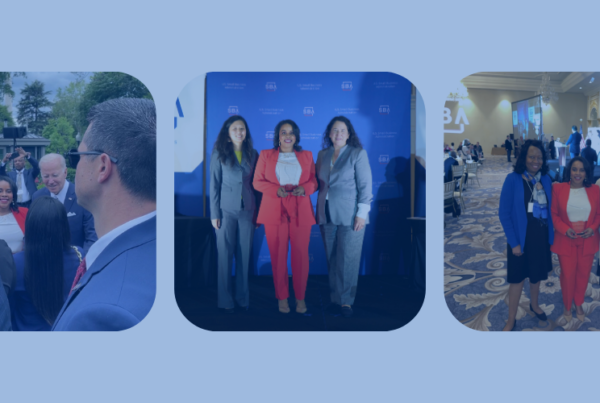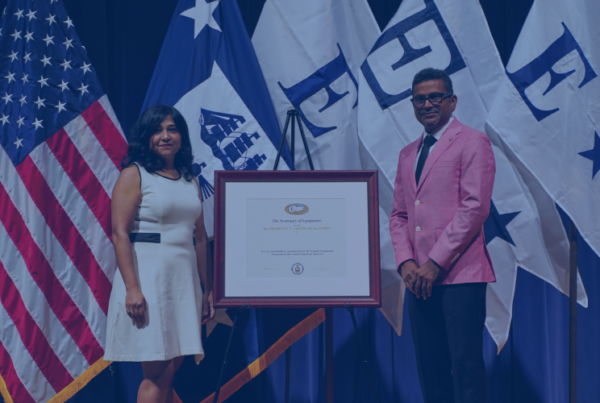In April, Dan Hockensmith joined ISRI’s communications team as a writer/editor. He is responsible for developing, writing, and editing content for use in ISRI’s digital publications, including Scrap News, newsletters, ISRI’s website, podcasts, and video programs. He works across the association to develop contacts and sources for outreach materials. In this edition of Faces of ISRI, he explains why he came to ISRI, and what he is most looking forward to undertaking for its members’ benefit.
Tell us about your background.
I’m originally from Ohio, and hold a bachelor’s degree in communications from Wright State University. I spent many years working for local news media and freelancing for national news services in Ohio, Indiana, Kentucky, and Michigan.
I had the good luck to get my foot in the doors of print and broadcast newsrooms when they were still highly siloed, so I got trained in different writing, editing, and visual styles, but in very focused, specific ways. I also came up when newsgathering and production were transitioning from analog to digital, so when everything morphed into today’s media environment, I had the equipment to keep playing the game.

During the early years of this century, I decided to switch from general assignment reporting to business reporting. I worked briefly in corporate marketing before moving to the Washington, D.C., area in 2014 to see how the policy sausage is made. Since then, I’ve worked in advocacy communications, B2B publishing, and as a federal contractor, most recently supporting communications and educational programs at the Federal Aviation Administration.
What made you apply for a job with ISRI?
I liked the thought of working for a member-driven association whose mission includes conserving resources, keeping materials out of landfills, and promoting good business practices. There’s a tremendous amount of brainpower in business and in government, and I wanted to help, in my small way, bridge the gap between them so all of that energy can be harnessed for good and profit. At the end of the day, I define myself as a professional storyteller, and the scope of this industry means there are endless ways to bring it to life for insiders and outsiders.
My first significant exposure to the recycling industry was during the Great Recession, when I covered packaging for Plastics News. Volatile commodities prices caused manufacturers in several industries to look for new ways to reuse postconsumer plastics. Also, companies like Walmart and Coca-Cola were getting serious about ensuring sustainability up and down the supply chain for years to come. Recycling suddenly went from being a feel-good, greenie-green logo on products to serious business.
My next job was at a scientific services company that tested industrial materials in the U.S., China, and Europe. Our legacy customers were tire manufacturers, but we started getting requests outside that industry to test tire components—rubber, polymers, steel, silica, carbon black—to see if those materials and compounds could have multiple lifecycles, like adding crumb rubber to asphalt mix.
Those experiences left me wanting to know more about the value that can be unlocked from materials over time. I wonder if we’ll achieve true circularity in my lifetime.
What are you looking forward to the most in working for ISRI?
Learning more about this essential industry, its history, and the way it is changing along with everything else in the world. I’d like to keep chapters informed about what we’re doing in Washington, D.C., and vice versa. I’m really looking forward to telling stories that originate at the local or regional level, and I’m thrilled to be part of an organization where there’s clearly a bond between members and staff, and an industry where everyone from the CEO to the worker processing materials is proud to do what they do.
As new technologies and new kinds of recycling—I’m thinking specifically about electronics—mix with the industry, it’s a great time be part of ISRI. The generational leadership shift that’s happening in the industry is fascinating, because managing change is such a delicate balance; you want to hold onto the best parts of the past while embracing new opportunities. I’m not an overly competitive person, but I love a good challenge. Keeping track of the evolution of recycling and staying on top of national, regional, state, and local trends on behalf of our members is going to be one heck of a ride!
If you have a story idea for Scrap News, please contact the following ISRI staff:
- Mark Carpenter, Editor/Vice President of Communications
- Hannah Zuckerman, Writer/Editor
- Dan Hockensmith, Writer/Editor
- Brian Sprowl, Digital Publications Manager
Photo courtesy of Dan Hockensmith.










